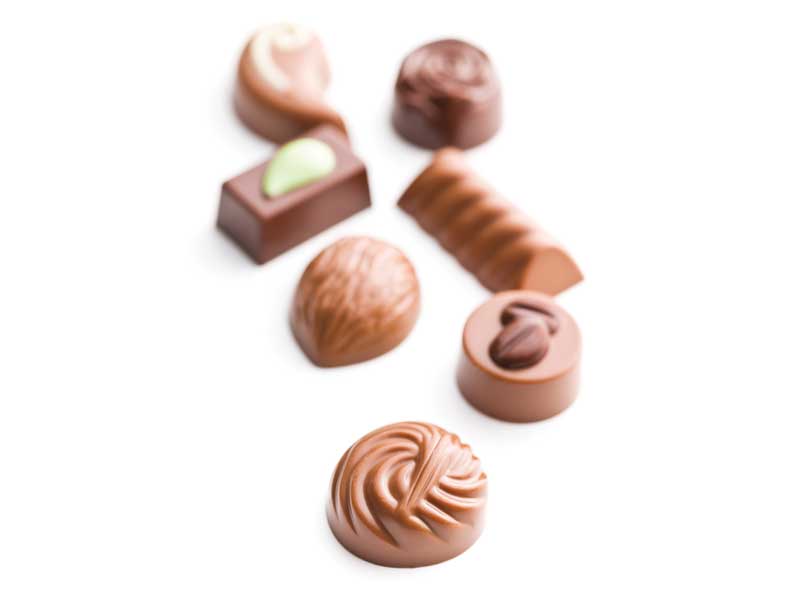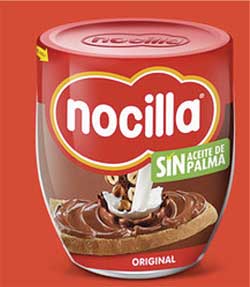



Two more food-based examples
December, 2018 in Issue 4 - 2018, Comment
Chocolate spread in Spain
In July, idilia Foods – producer of Nocilla, available in the Spanish market since 1968 and more popular than Ferrero’s Nutella – launched a new recipe that replaced palm oil in all products with sunflower oil and cocoa butter. Nocilla jars now carry a green ‘palm oil-free’ (‘sin aceite de palma’) claim.
Highlighting a new recipe is one thing, but choosing to denigrate palm oil for marketing purposes is another. idilia Foods argues that the reformulation of the different varieties of Nocilla supposes a reduction of more than 40% in saturated fats in the nutritional profile of the product. This leads to two key questions:
1. If the intention is to replace palm oil with high oleic sunflower oil in order to reduce saturated fats, could a ‘low saturated fats’ claim be used instead of a ‘palm oil-free’ claim?
2. Are saturated fats per se unhealthy?
Annex 1 of the EU’s Regulation on nutrition and health claims made on foods allows claims for products that are ‘low saturated fats’ and for those that are ‘saturated fats-free’. A claim that a food is low in saturated fats, and any claim likely to have the same meaning for the consumer, may only be made if the total of saturated fatty acids and trans fats in the product does not exceed 1.5g per 100g for solids; and the sum of saturated fatty acids and trans fats must not provide more than 10% of energy.

Source: idilia Foods,
http://www.idilia.es/en/marca/nocilla/
The original Nocilla had 11g saturated fats per 100g. A 40% reduction leaves the saturated fats content of the ‘palm oil-free’ Nocilla at 6.4g per 100g! This is still more than four times above the 1.5g required by law to make the ‘low saturated fats’ claim.
Most importantly, the list of permitted claims under the Regulation is a closed list. There is no claim for only a reduced saturated fats content. And even if the saturated fats content were reduced to 1.5g per 100g, Nocilla’s overall nutrient profile would, arguably, not permit making such a nutrition claim.
In simple terms, the so-called nutrient profiles are generally intended to determine whether foods are, based on their nutrient composition, eligible to bear claims. Nutrient profiles must ensure that foods high in sugar, fat or salt, for example, do not carry a nutrition or health claim.
Are saturated fats per se unhealthy? Because of their complex nature, the World Health Organisation (WHO) has made few recommendations as to the category of fat that should be consumed. The WHO suggests that consumers replace some saturated fats with unsaturated fats, and recommends that consumers avoid trans fats. Trans fats are, inter alia, present in fats that have been industrially processed to artificially solidify them through hydrogenation (i.e. treated with hydrogen). The WHO does not recommend banning specific types of vegetable oils.
Palm oil could actually play an important role in replacing trans fats, as the different natural oils and fats (or fractions) that it contains can be either solid or liquid at room temperature. Palm oil contains all three main types of fat: 49% saturates (mainly palmitic acid), 37% monounsaturates (mainly omega-9 oleic acid) and 9% polyunsaturates (mainly omega-6 linoleic acid).
Other vegetable oils that are high in monounsaturates include olive and rapeseed oils. Maize, sesame, soybean and sunflower oils are higher in polyunsaturates. Most nutritionists believe that more monounsaturates should be consumed.
It is not the first time that idilia Foods is ‘in trouble’ because of its nutrition claims on Nocilla. In February, the Spanish Consumer Organisation OCU filed a complaint with the Directorate of Consumption of the Generalitat Valenciana for breach of misleading food information provided to the consumer. In that case, the OCU alleged that idilia Foods was illegally making nutrition claims about the milk and calcium content of Nocilla.
Making a permitted claim for ‘low saturated fats’ is not an option, considering the actual saturated fats content. The intention of idilia Foods is clearly to give the new Nocilla a ‘healthier’ image to the detriment of palm oil, circumventing the EU’s Regulation on nutrition and health claims.